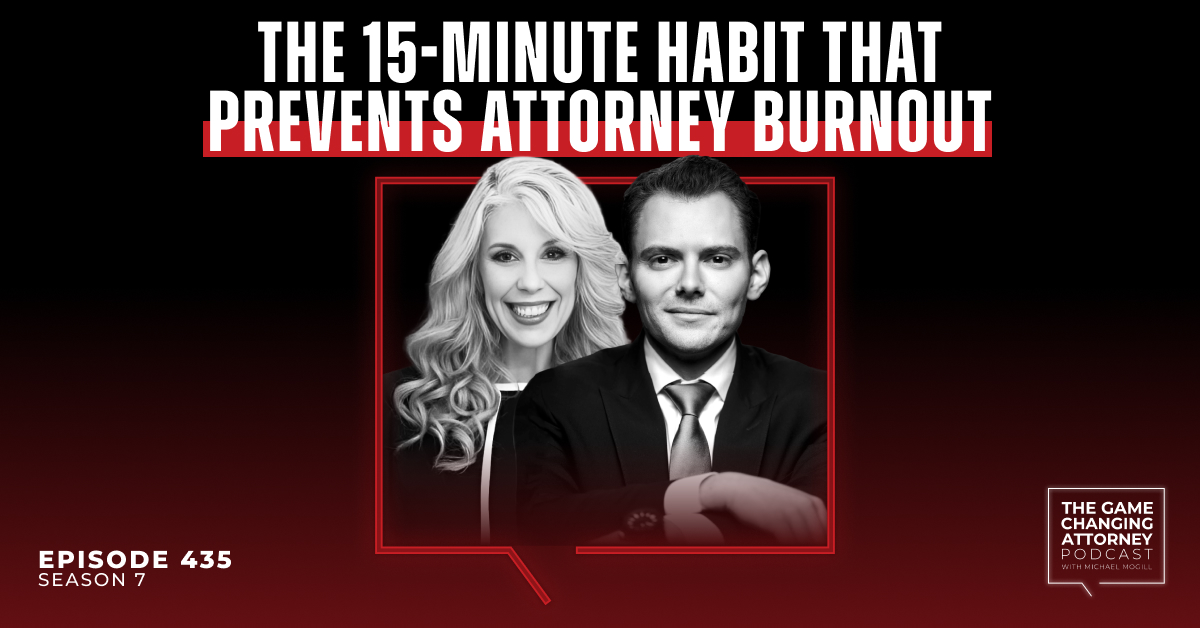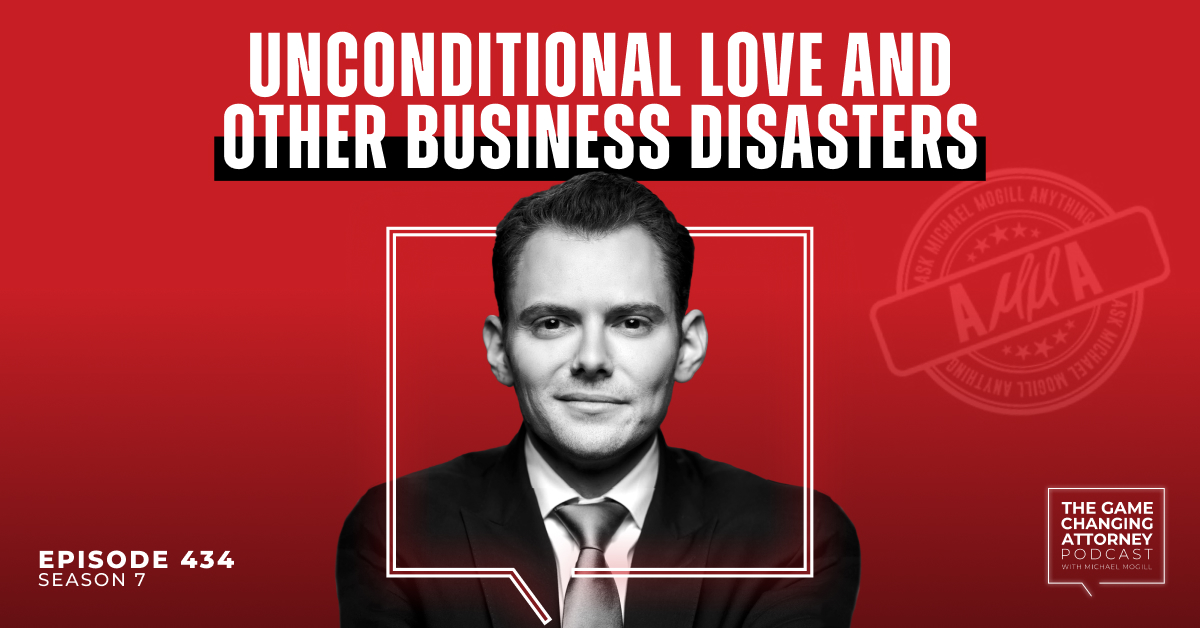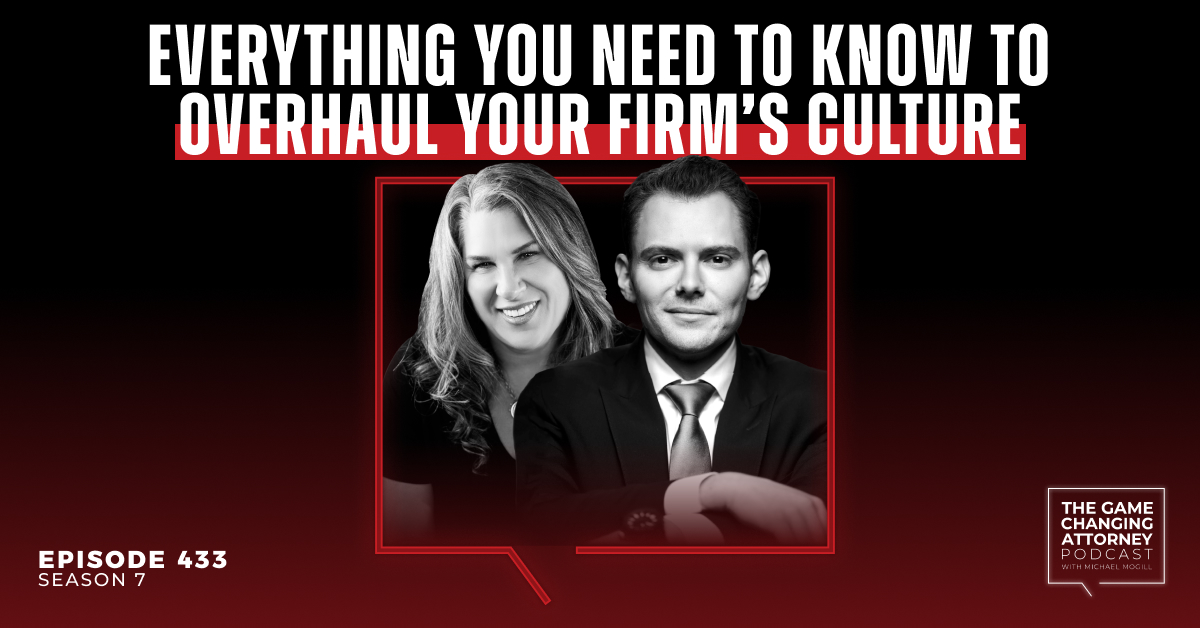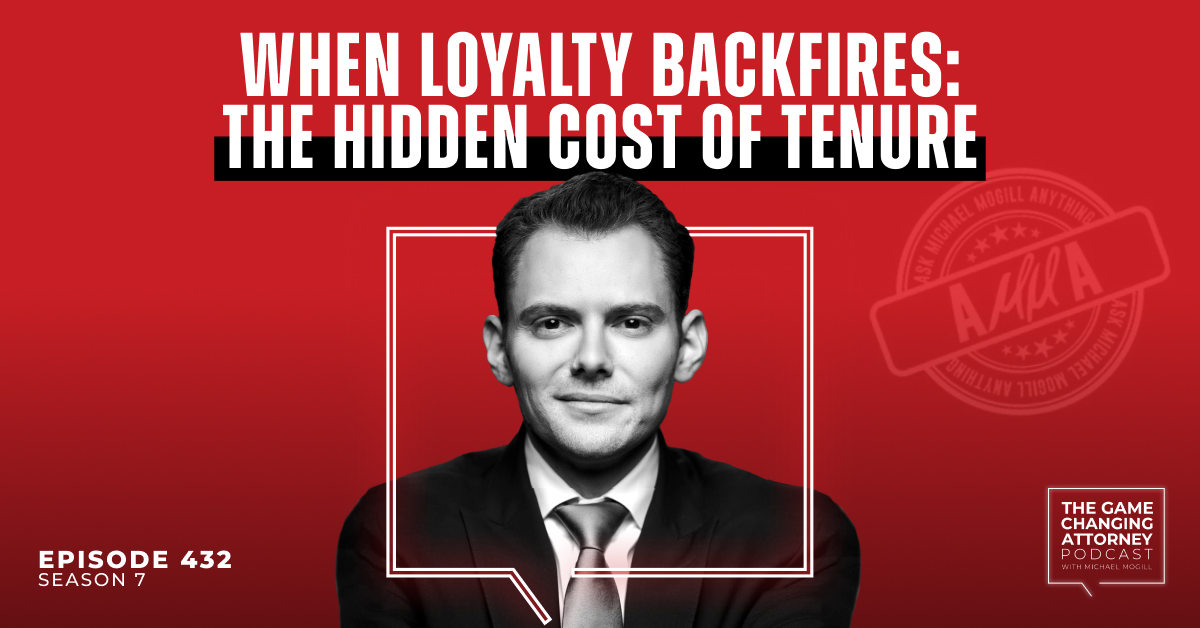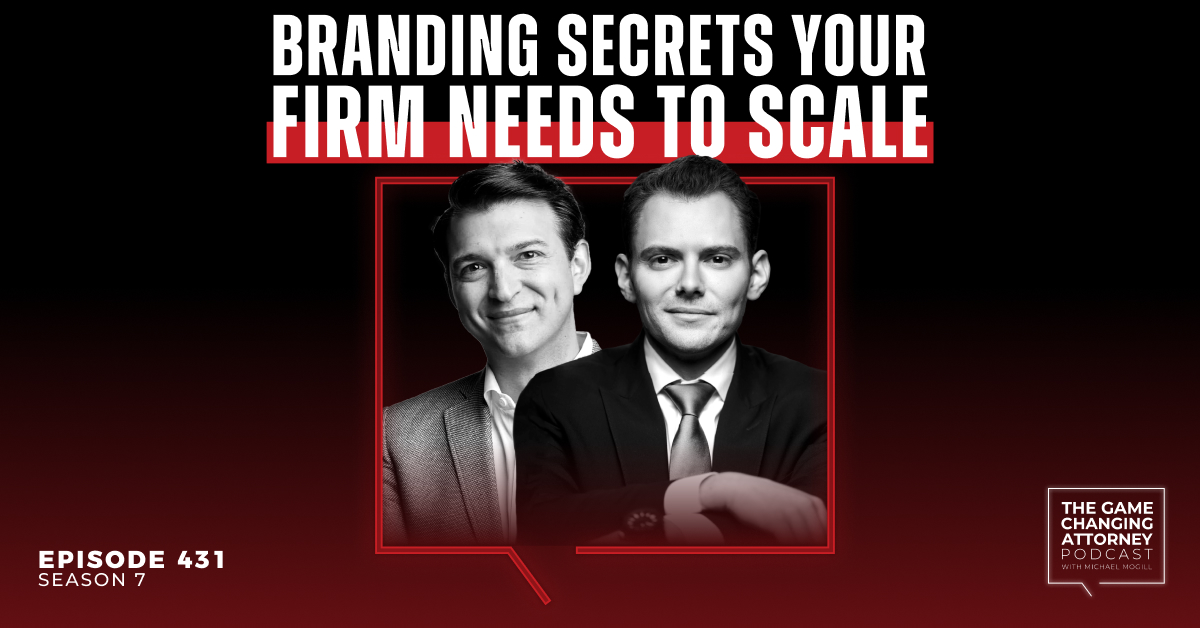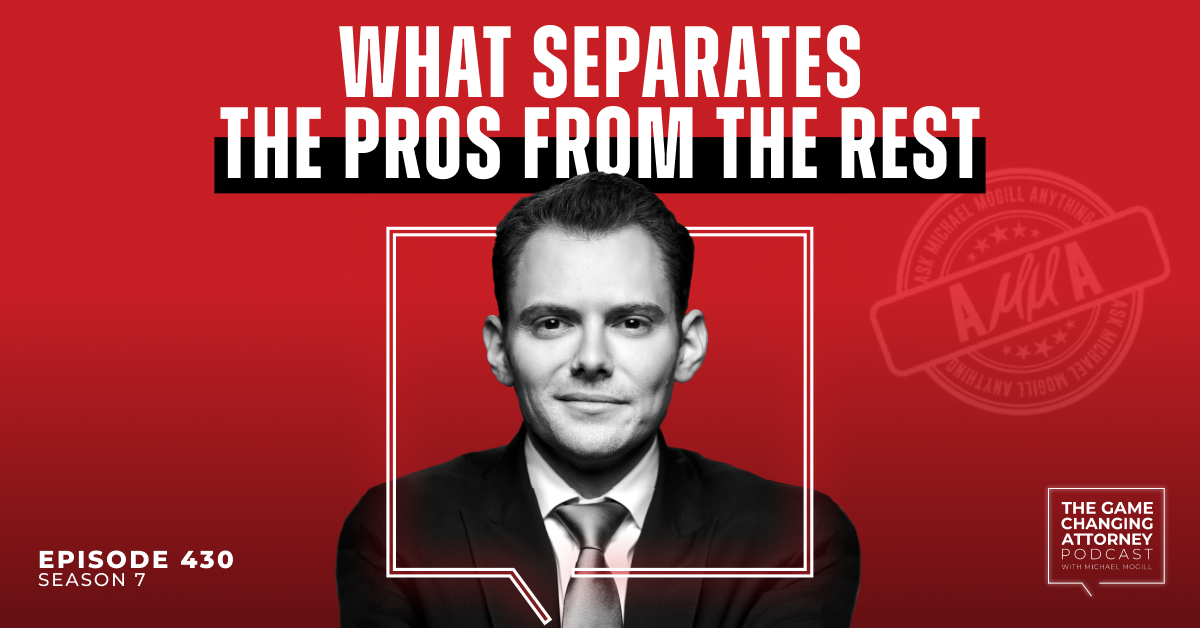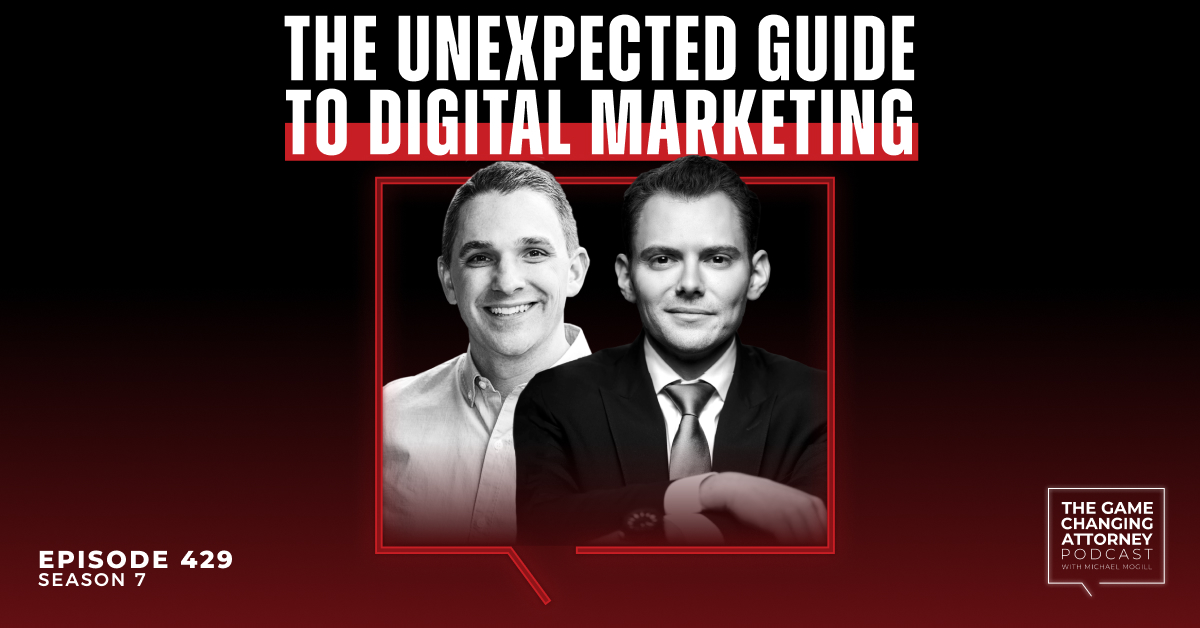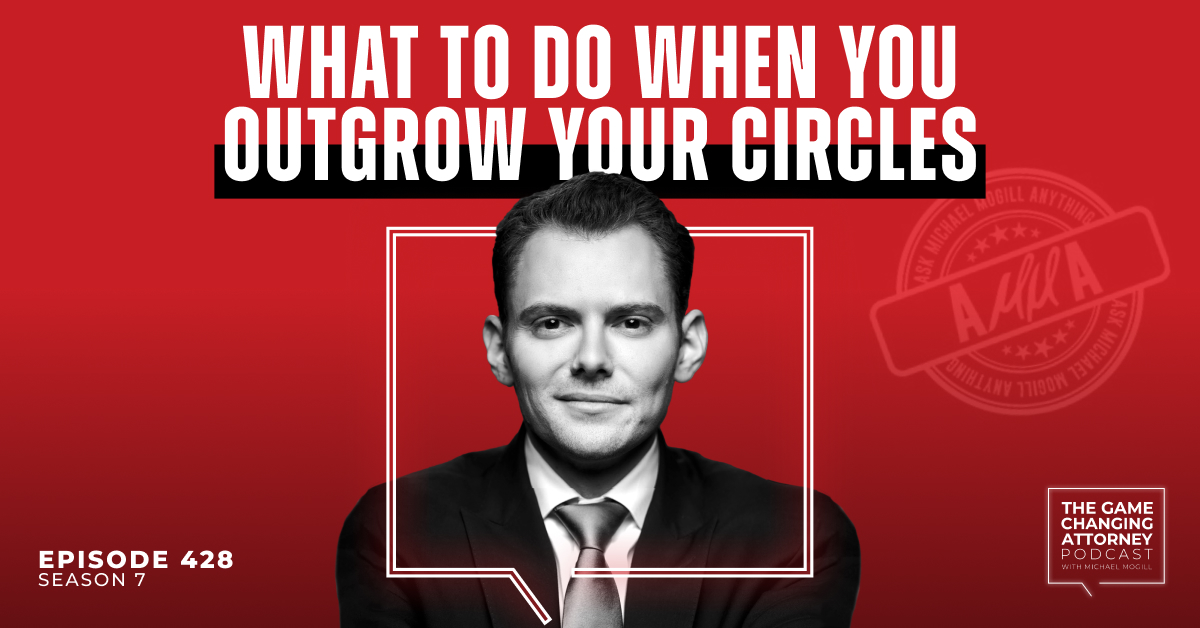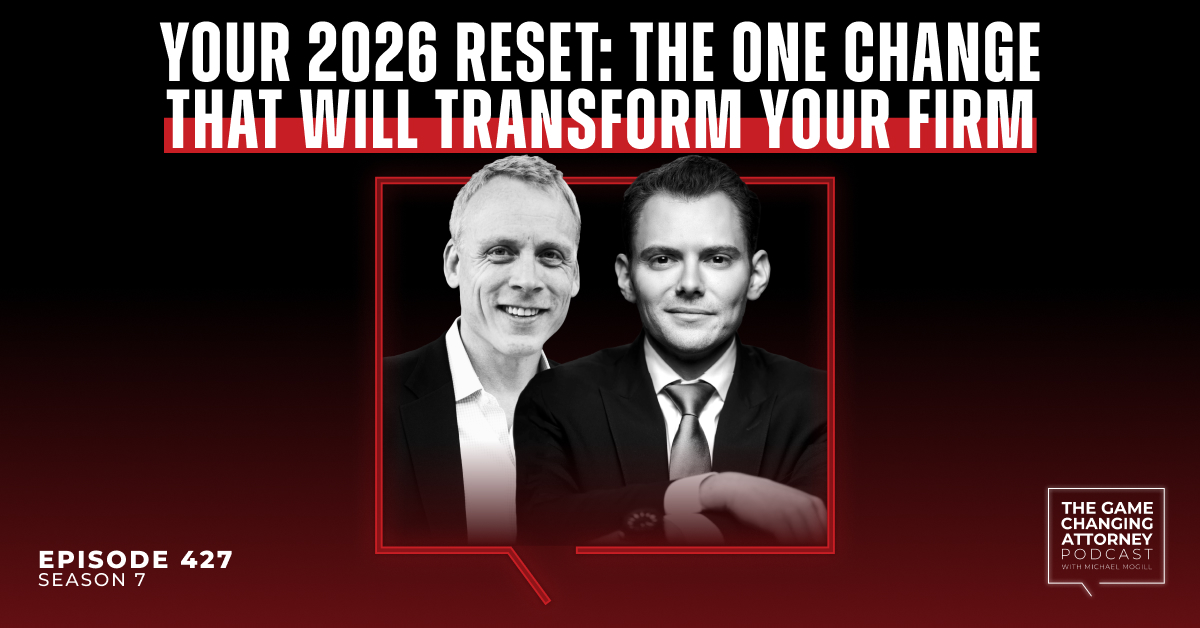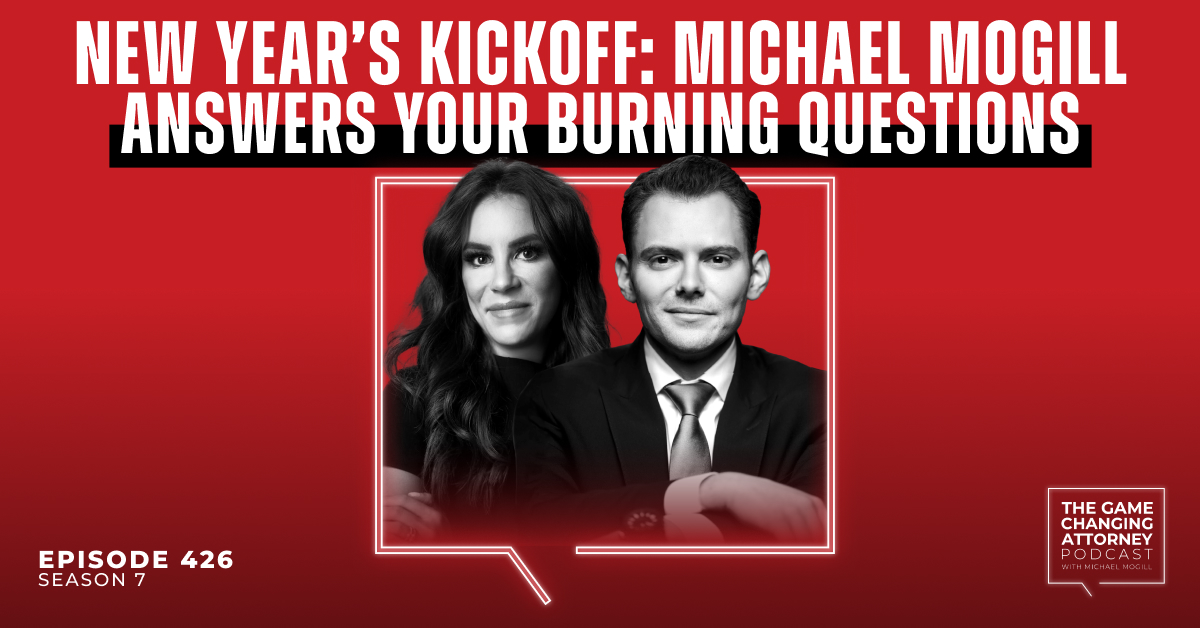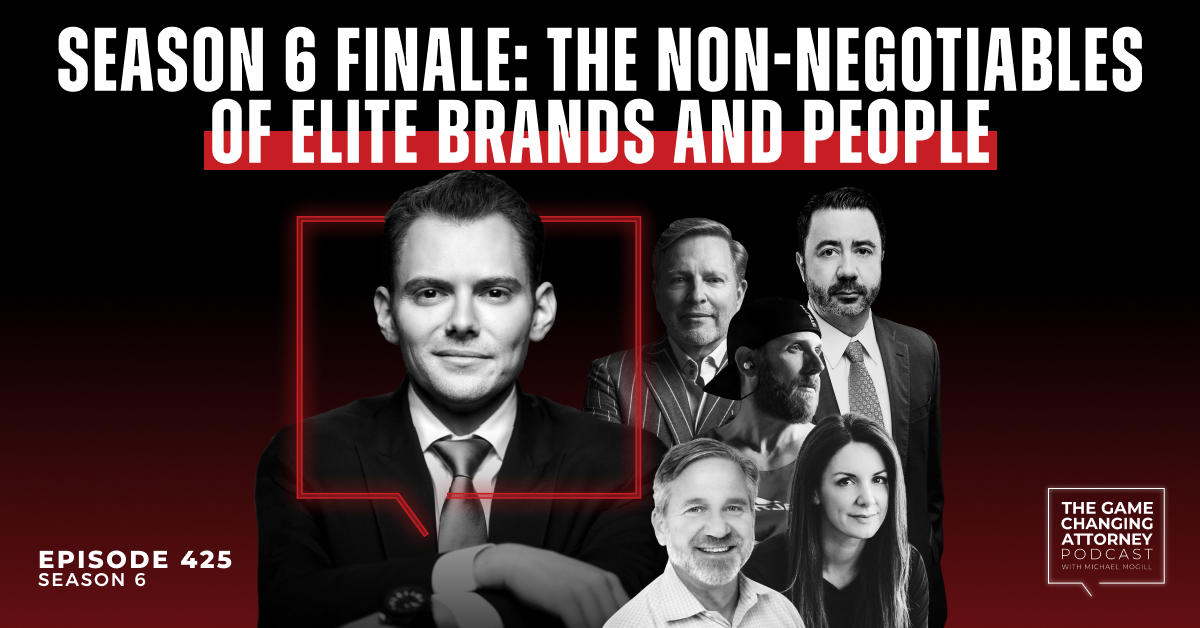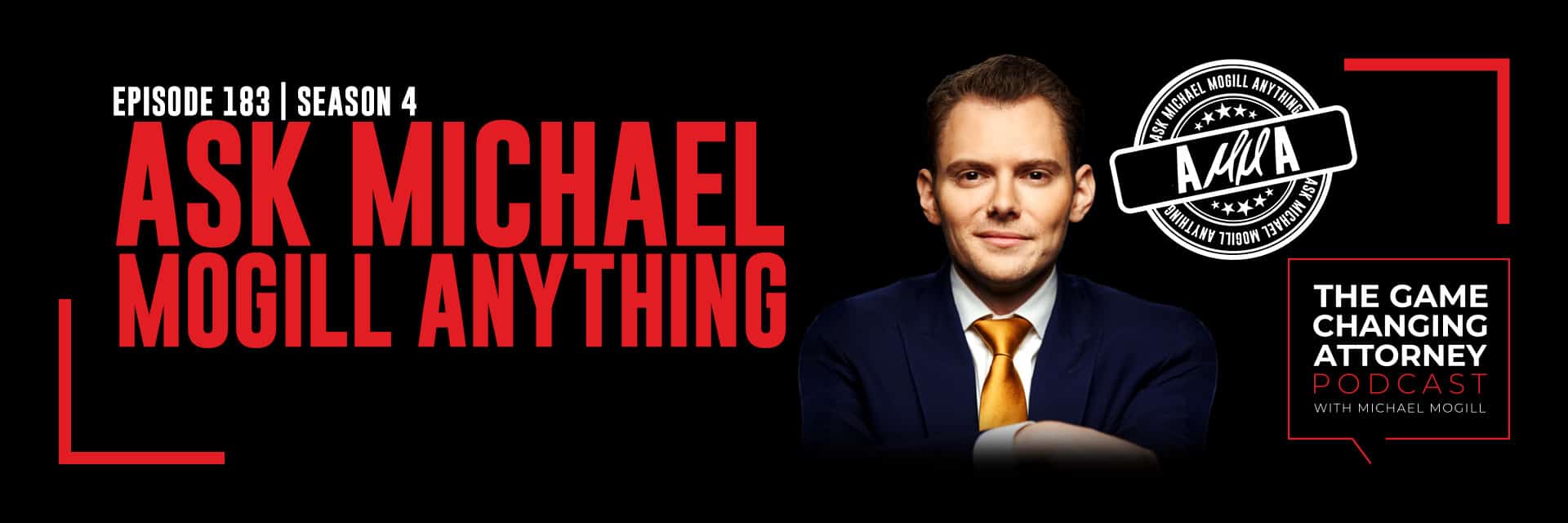
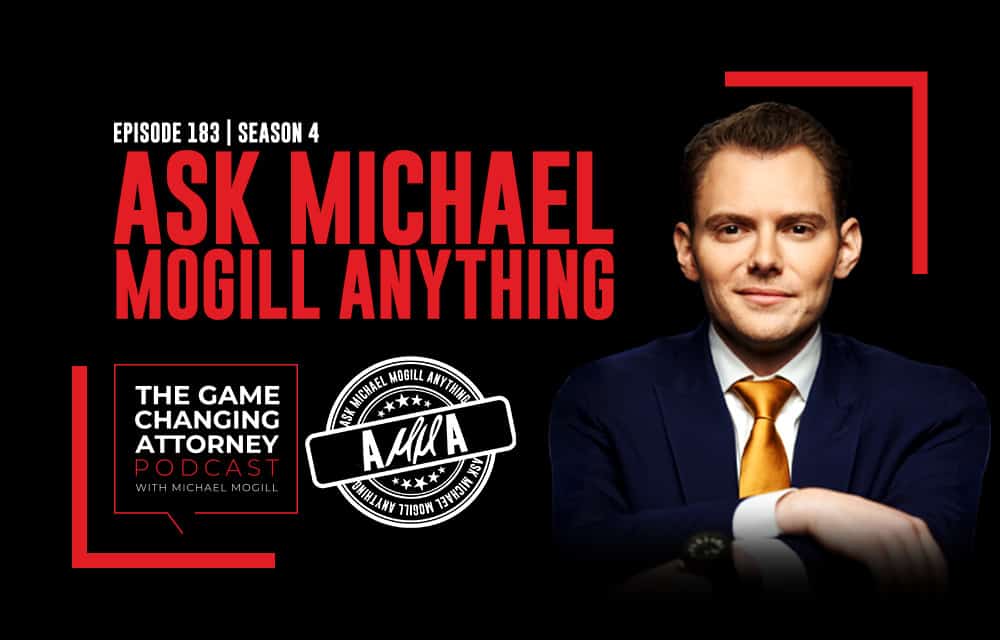
Episode 183 — AMMA — Ask Michael Mogill Anything: How Great Leaders Make Decisions
As the leader of a growing business, the decisions you make impact everyone around you in huge ways. The future of your organization, your team members, your clients, and your community depends on making the right calls when it matters most.
So how can you ensure your decision-making is the most effective it can be?
In this episode of The Game Changing Attorney Podcast, Crisp Founder & CEO Michael Mogill equips listeners with expertise on:
- The factors you need to consider when making high-stakes decisions
- Which sources of criticism to take seriously — and which to ignore
- How to fight decision fatigue in an increasingly complex business
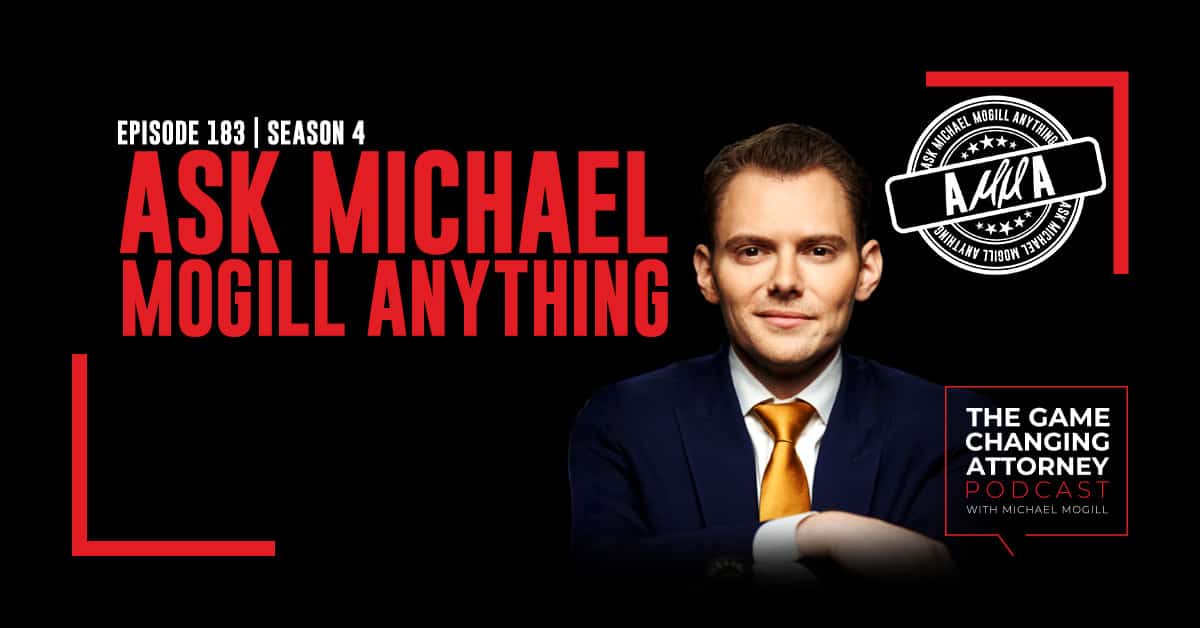
Listen & Subscribe
Show Notes:
How to weigh high-stakes decisions. “The first thing is being very clear on — ultimately, some people call it vision, but just where you want to go — where you want to take the firm so that you have some sort of North Star to be able to evaluate your decisions against. Because if you don’t have any trajectory or any target in mind that it’s hard to know if a decision that you’re about to make will move you closer or further away. So you have to be able to have some sort of metrics, some North Star. The next thing I look at when making a decision: I try to evaluate a couple things. Number one, what is the value of the upside of making the right decision? If I make the right decision, what is the upside of that? What is the downside of making the wrong decision? Let’s say if I make the wrong call, what is the cost of that? Sometimes there’s financial cost. Sometimes there’s a time cost. Sometimes there’s an opportunity cost. And then I look at two more probabilities: What’s the upside, but then what’s the probability of being right?.”
Do you have enough information? “It’s really called like an ‘expected value equation,’ so meaning that you want to make sure that there’s enough of a difference between the upside of being right and the downside of being wrong, and then the probabilities are really kind of in the favor of being right. A lot of times the thing that influences those probabilities is do you have enough information? Sometimes you don’t know enough about the decision that you’re making. You don’t have enough context. You’re not able to make a good decision. So usually I look at that saying, ‘Do I have at least, let’s say 70% of the information, or 75% of the information that I need to make the right decision here?’ Because anything above that just becomes procrastination that usually is not much utility, and having the time cost and the opportunity cost of gaining all the information. So 75% is usually enough. But if you don’t have enough, that increases your probability of making the wrong decision.”
How to assess a potential investment. “I never invest in anything I don’t understand. There’s always going to be things that I think people get excited by. They’ll hear it, whether it’s on the news or on social media. Whenever something’s popularized like NFTs, then everyone feels the need to invest in that. Or when we saw Bitcoin and other types of cryptocurrency taking off, everybody becomes a Bitcoin expert. Or when the stock market is taking off, now everyone’s an expert on the stock market — and it’s easy to see all these ‘experts’ when things are going up because there’s really not a whole lot of expertise involved. They’re just riding the momentum of good returns. So it’s really important to understand the things that you’re investing in. I tend to be a more boring investor. I like things that are more steady and consistent. I don’t have to win today. I look at things over the long term. I’m a big fan of compound interest. I’m a big fan of real and tangible assets. That may not be as exciting in the sense that there’s not these moonshot returns. And look, to an extent, I’ll invest in cryptocurrency, but a very small percent, like maybe 2-3%. Not a huge amount because anything that’s ‘get rich quick’ is generally not for me. I’m a fan of get rich slow and ultimately stay rich.”
The unpopular decisions pay off. “I’ve never had to make a tough call that was popular. I think when you look back at Crisp history, the things that generated the greatest exponential returns and also that moved us forward the most were the least popular. Generally it’s the things that become the most popular that don’t inspire much criticism, that many naysayers really aren’t pushing the envelope very much. They tend not to be very innovative. They tend to not be outside the norm, and they tend to be safe, and as a result, you’re never going to see outsized returns from those things.”
Take criticism from the right places. “What I found is that when you put yourself out there, it’s going to inspire some sort of criticism. Look what’s happening. We’re growing tremendously. Our clients are seeing a ton of success. Their firms are transforming. We’re making a lot of noise. We’re giving away cars. I get it. I understand. With that comes a lot of criticism, and I think it’s very important to be able to hone back in on what your North Star is, why you’re doing what you’re doing. Instead of focusing externally, we focused on our clients and serving them and supporting them, and that’s really what carried us through. At the end of the day, there’s going to be people who are critical, but we look internally and say, ‘What about the people who are actually investing with us? Our clients that are actually spending money, that are actively engaged? How are we doing for them?’ And if they’re happy and if they’re engaged and if they feel supported, if they’re transforming their firm, and we were hearing case studies every single week of just incredible transformations, well then we’re going to do more of that. And if somebody else externally, that does not spend any money with us, has opinions, feels a certain kind of way, well, we’re going to take that with a grain of salt because we’re going to focus on our check writers, and we’re going to focus on the people that are actually a part of our community that we want to help and serve, and ultimately be able to reach more people.”
How to avoid decision fatigue. “We’re all making hundreds of decisions every single day. The value of those decisions is not equal. Some are going to be much more impactful than other decisions. I try to minimize the number of decisions that are not as impactful that I even have to make. I delegate a lot of that decision-making to our leaders and our managers, meaning that I don’t have to approve a $25 request or whether we’re going to do nametags, those types of things. I used to, but then I found that I’m kind of using up my decision bank on decisions that are not as impactful. I will make a decision on: Are we going to move in this direction?
Are we going to expand our ecosystem in terms of this new offering? Are we going to hire this executive leader? Those types of decisions I think are much more important and much more leveragable….The idea of leverage is that your output on things and decisions is not always going to be 1:1. There’s going to be certain things that you can do that can create 10:1 output, 100:1 output, 1000:1 output, so it’s important to find those types of opportunities because not every hour is created equal and not every task that you do is equal in terms of importance and impact. It’s being able to focus on how do I spend the majority of my time focusing on things that are the highest impact and are going to create the most amount of leverage?”
RESOURCES & REFERENCES
Disney
Bob Iger
Jeff Bezos
NFTs
Bitcoin
S&P 500
Game Changers Summit
Crisp
David Goggins
Christian Horner
Red Bull Formula One team
Formula 1: Drive to Survive (Netflix series)
Nick Saban
Four Seasons
The Ritz-Carlton
Jocko Willink
Connect with Michael
- Text directly at 404-531-7691

